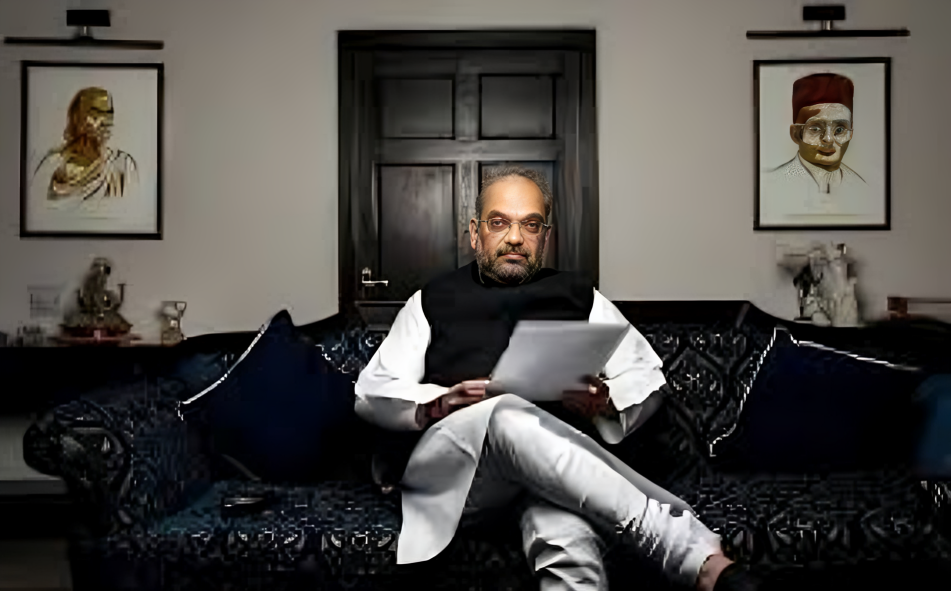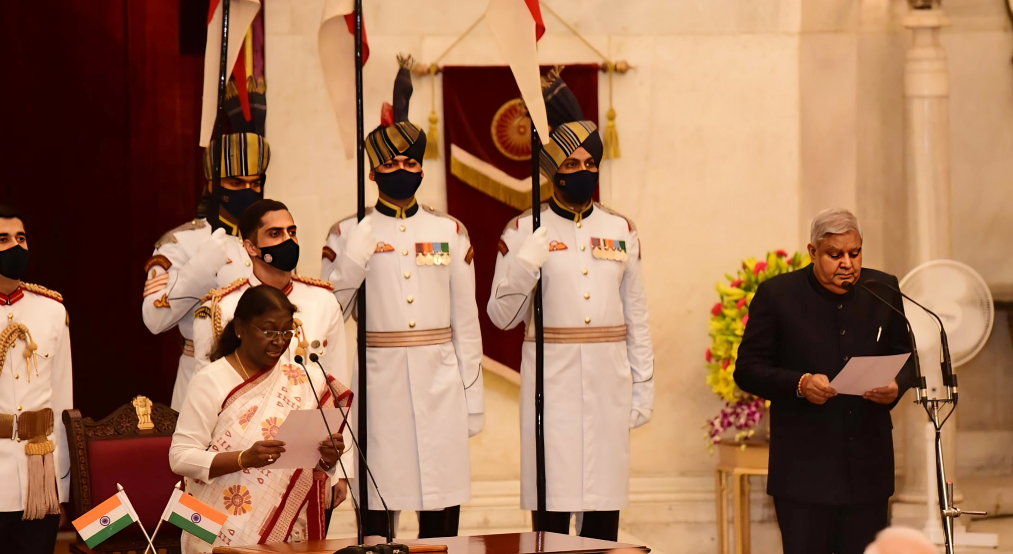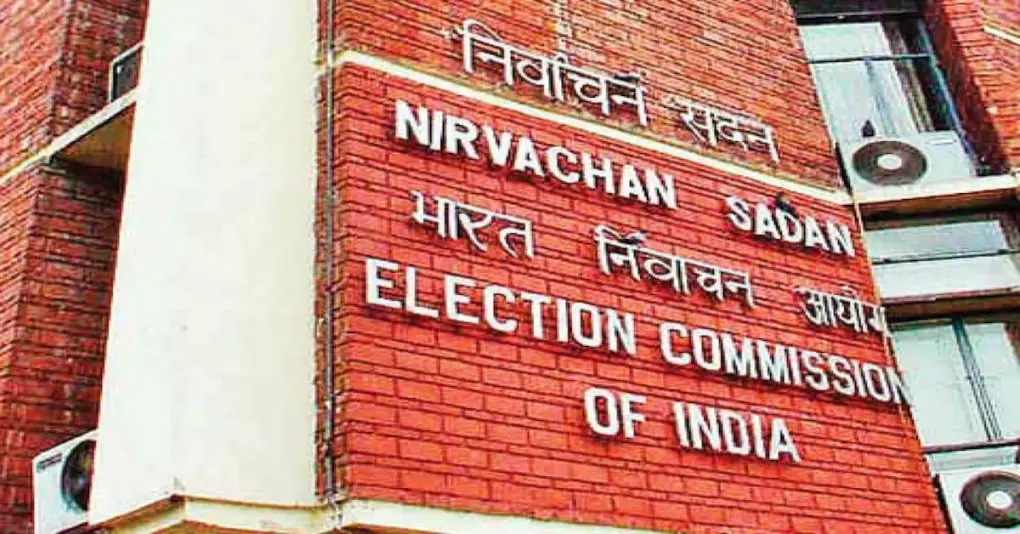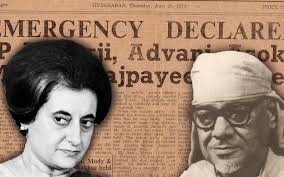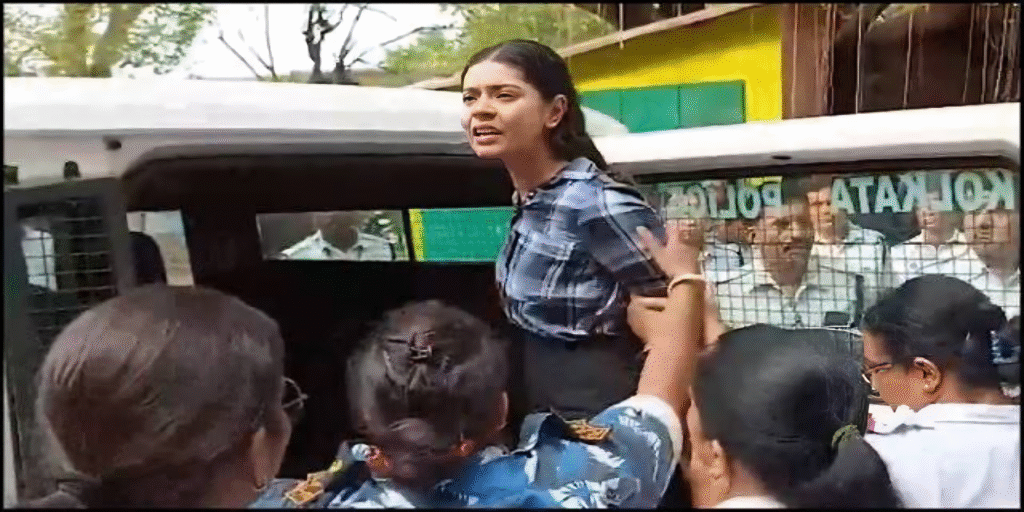
In a dramatic move that has sparked a nationwide debate, the West Bengal Police arrested Sharmistha from Gurugram. Known for being a vocal voice for Hindu rights and an emerging figure in nationalist circles, her arrest has ignited questions about the freedom of speech in India. This development comes shortly after the successful execution of Operation Sindoor, an event that symbolized a strong assertion of India’s resolve on national security and Hindu civilizational pride.
The arrest has not just angered her supporters, but has also exposed a deep-rooted panic in the left-liberal ecosystem, which appears unsettled by the rising wave of unapologetic Hindu voices.
Who is Sharmistha and Why Was She Arrested?
Sharmistha is not a household name like major politicians, but in the world of digital activism and Hindu civilizational discourse, she has emerged as a fierce and articulate personality. A law student turned socio-political commentator, she gained prominence after openly supporting Operation Sindoor and criticizing what she called the “selective outrage and hypocrisy” of the so-called secular elite.
Her social media videos, fiery posts, and panel appearances had begun gaining traction among nationalist youth, especially those looking for strong female voices in the Hindu rights space. She unapologetically called out historical wrongs, modern appeasement politics, and the silence of the liberal lobby on the atrocities faced by Hindus in various parts of India and abroad.
Her arrest was allegedly made under charges of “promoting communal disharmony” and “inciting hate speech”, according to West Bengal Police. However, many legal experts and activists argue that these charges are vague, politically motivated, and a clear case of vendetta policing.
Why Was West Bengal Police Operating in Gurugram?
This is one of the biggest questions that has puzzled many. Sharmistha was arrested in Gurugram, Haryana—thousands of kilometers away from Kolkata. She was not hiding. She had not committed any act of violence. All her statements were made online in a democratic setup.
Legal experts are raising concerns over jurisdiction, misuse of state police powers, and how opposition voices are being cornered using the very institutions meant to protect democracy. Gurugram police, it is being reported, were not even given prior intimation.
The arrest shows an increasing trend where state machinery is used to silence voices that oppose ruling regimes in specific states, especially those governed by parties that are ideologically opposed to the current nationalist wave.
Operation Sindoor and the Political Climate
Operation Sindoor, launched by the Indian government to protect Hindu families and eliminate cross-border threats in a sensitive border region, became a turning point in the nation’s political narrative. While the common public across the country appreciated the precision and intent of the operation, a section of the elite left-liberal circles began criticizing it.
Sharmistha had strongly defended the operation, arguing that the operation was not anti-Muslim, but pro-justice and national integrity. She openly asked why Hindu voices are seen as threats and why any assertion of Hindu identity is immediately labeled as “communal”.
This made her a target of criticism from known left-aligned portals, influencers, and even political leaders. There were social media campaigns branding her as “dangerous” and “radical”, even though she had never called for violence or hatred.
The Left Ecosystem’s Nervous Breakdown
What the left ecosystem is facing today is an identity crisis. For decades, it controlled the narrative, dominated the intellectual discourse, and decided what was secular and what was communal. But now, post Operation Sindoor, that monopoly is breaking.
New voices like Sharmistha are rising—young, confident, nationalistic, and unapologetically Hindu. They are using the same digital tools, the same English vocabulary, and the same platforms that were once dominated by left-liberals. And they are connecting with the youth.
Her arrest is not just about one person. It reflects a deeper fear—that of losing narrative control. The ecosystem that once controlled universities, media, and literature now finds itself being questioned, challenged, and often defeated in the public discourse.
And their response? Not debate, not dialogue—but suppression.
The Question of Free Speech
This is where the real debate lies. Can someone be arrested for expressing political opinions in a democracy? Is it a crime to say that Hindus have suffered? Is it dangerous to say that certain parties have followed appeasement politics for decades?
Sharmistha’s case is not isolated. Many social media influencers, thinkers, and activists aligned with the nationalist ideology have faced harassment—be it through online bullying, police cases, or media trials. Yet, when someone from the liberal camp makes even more extreme statements, they are hailed as “speaking truth to power”.
This double standard is eroding the very foundation of our democratic system. Free speech cannot be selective. It cannot depend on who is in power or what the dominant ideology of a state is.
The Role of State Police and the Politics of Fear
West Bengal, under the current political leadership, has seen multiple cases where dissenting voices are arrested, attacked, or silenced. Be it student leaders, teachers, journalists, or activists, anyone who does not fall in line with the TMC’s narrative has faced the heat.
This pattern of political policing is now being replicated outside state borders. By arresting someone like Sharmistha in Gurugram, the West Bengal Police has sent a chilling message—that the long hand of ideological revenge can reach anywhere.
It raises serious concerns over federalism, misuse of police, and the collapse of inter-state trust. If every state begins to behave like a political empire, arresting people for social media posts made from another part of the country, the unity of India’s democracy will be deeply compromised.
Support Pours In From Across the Nation
The arrest has sparked protests, online campaigns, and even statements from sitting MPs and senior lawyers. Many BJP leaders have condemned the arrest and demanded her immediate release. Legal forums and civil rights organizations have also joined the chorus, calling it a case of “digital emergency”.
Twitter (X), Instagram, and YouTube are filled with hashtags like #FreeSharmistha and #HindusUnderAttack. Many see this as a defining moment in the battle for ideological space in India—where nationalism is rising, but so is the pushback from old power centres.
Is This the New Normal?
This incident must force us to ask a bigger question. Are we entering a phase where every Hindu voice, if it speaks too loudly, will be called fascist? Where every woman who refuses to wear the badge of victimhood will be termed “dangerous”? Where political disagreement will be treated as criminal offense?
If the answer is yes, then democracy is in danger—not from those who speak, but from those who silence.
India is not a banana republic. It has a Constitution, a legal system, and above all, a vibrant society that values debate. Silencing voices like Sharmistha’s only proves that the other side has run out of argumen
What Next for Sharmistha?
Her legal team is fighting the case, and there are growing demands for a central inquiry into the misuse of police power. Whether she is released soon or not, one thing is clear—she has already become a symbol.
A symbol of resistance. A symbol of fearless Hindu assertion. And a symbol of the growing chasm between people’s sentiment and elite political correctness.
Young nationalists across India now see her as a case study. She might have been arrested, but her voice has reached ten times more people because of it.
Final Thoughts
The arrest of Sharmistha is not just a legal case. It is a political signal. It tells us what the ecosystem fears the most—an educated, young, fearless, articulate Hindu woman who can challenge decades of silence and imbalance.
It tells us that while Operation Sindoor might have ended militarily, its ideological impact is still shaking the status quo.
In a country where every citizen has the right to speak, think, and express, arresting someone for voicing support for Hindu causes is not just wrong—it is dangerous. Dangerous for democracy. Dangerous for free speech. And dangerous for national unity.
The nation must rise above petty politics and defend the right to dissent—even when that dissent does not come from the usual quarters.
If democracy must survive, it must allow all voices. And if free speech must remain sacred, it must protect even those who challenge the mainstream.
The arrest of Sharmistha may have been intended to silence her, but in reality, it has amplified her voice—and the voice of millions like her who are now asking:
Is this the price of being a proud Hindu in your own country?
Is this the cost of free speech in the world’s largest democracy?




